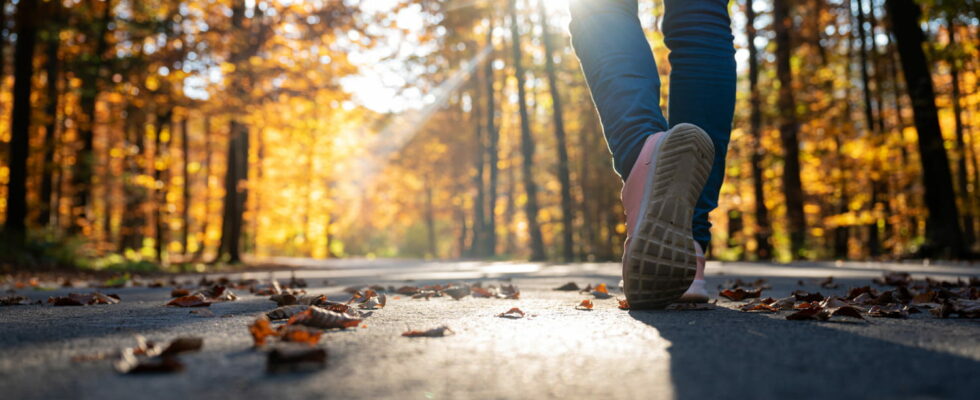Walking is probably the simplest form of exercise. You can even improve its benefits thanks to this good habit.
Walking daily is an obligation for many people, when it is not a need or a desire for others. But above all, walking has, as we know, multiple benefits for the metabolism, as well as for the brain. In particular, neuroscience has discovered that the rhythm of your feet’s movements and the light attention required by the environment when you walk stimulate creativity and help you find ways around mental blocks.
The rule of 10,000 steps per day, which dates back decades, is therefore important. But it does not turn out to be so relevant if we consider it only from a mathematical point of view. For scientists, getting the most out of your walking routine isn’t about achieving more or fewer steps. It’s also about being a little bit methodical, because it’s better to “walk well” than “walk a lot” or “walk quickly.”
In a study published in Proceedings of the Royal Society B, and entitled “Move less, spend more: the metabolic demands of short periods of walking”, a team of researchers measured the oxygen consumption of around ten participants during short periods of walking of 10 to 240 seconds, on a treadmill. With conclusions as logical as they are relevant for your daily walk.
You should first know that like when accelerating a car, our body burns 20 to 60% more energy (and therefore oxygen) when it accelerates. Which can quickly pump fuel, “tiring the engine” and ultimately reducing your ability to walk over time. It turns out that it is not by forcing yourself to walk as far or as quickly as possible that you will optimize the effects of walking, but by staying at a constant pace and taking breaks to catch your breath and to share out.
These findings are crucial “for individuals with low aerobic capacity and increased time to reach a stable metabolic state,” the researchers write. If you’re out of breath after a few minutes of brisk walking, stop pushing yourself: stopping to smell the flowers by the side of the road will add nothing but joy to your outing. For more or less dedicated athletes, there is no need to count your steps or sweat on steep slopes to get the most out of your walking routine. Far from reducing the effects of walking, breaks on the contrary make exercise both more pleasant and more effective.
The study obviously raises some reservations. All participants were healthy young adults, so these recommendations may not apply to all ages or people with specific problems. Before adopting techniques to make your walking more efficient, it is obviously necessary to know your limits and talk to your doctor.
